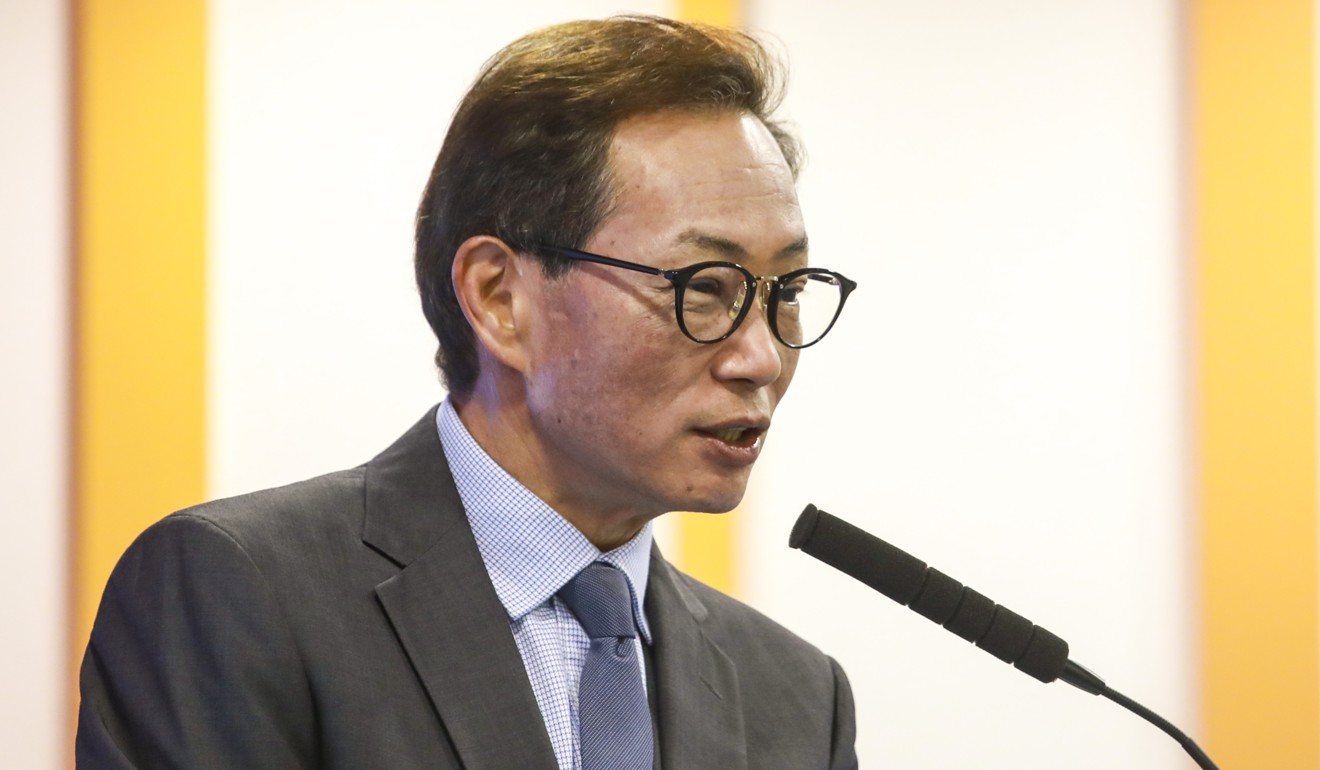
Hong Kong’s privacy watchdog reveals 75-fold increase in doxxing complaints amid anti-government protests in 2019
- Complaints shot up from 57 in 2018 to 4,370 in 2019, with 1,402 cases transferred to police for their potentially criminal nature
- Privacy Commissioner for Personal Data Stephen Wong proposes a host of measures to curb cyberbullying and data leakage in the new year
Privacy Commissioner for Personal Data Stephen Wong Kai-yi called the trend “alarming” as he released his office’s annual report for 2019 on Tuesday and set out his reform directions to curb cyberbullying and data leakage in the new year.
“In the past few months, digital violence and hate speech often descended into the city. As the Lunar New Year is around the corner, our message is online peace and data prosperity,” Wong said.

Doxxing has been used as a weapon during the social unrest, with people on either side of the anti-government movement disclosing and spreading personal information of not only their opponents but also their family members, often along with intimidating messages.
With nearly 5,000 doxxing cases during Hong Kong unrest, new powers mulled
Complaints have shot up from 57 in 2018 to a staggering 4,370 by the end of last year. About 36 per cent or 1,580 cases involved unauthorised disclosure of personal data belonging to police officers and their families, while 20 per cent, or 873 cases, concerned doxxing of protesters.
About 30 per cent of the complainants had expressed pro-government views, while 10 per cent, or 434 people, aired anti-government opinions. Four per cent of the complaints were related to government ministers and their family members.
As of January 10, the watchdog referred 1,402 potentially criminal cases to police for further investigation and prosecution. Eight arrests have been made.
In addition to the doxxing complaints, the privacy commissioner has received 2,480 complaints over an incident at the Tai Po Mega Mall on December 26.

On that day, an officer displayed Stand News reporter Ronson Chan’s identity card in front of a live-streaming camera with 10,000 online viewers during a heated interaction with protesters in the mall. The action prompted a stinging rebuke from the privacy commissioner and a promise to launch a “proactive investigation”.
Wong revealed he too had been doxxed when a stranger threatened to “celebrate” his birthday with him. “I was left disturbed and perplexed, even though he got the date wrong.”
Doxxing: the powerful ‘weapon’ in the Hong Kong protests had a petty beginning
To tackle doxxing, Wong and the government proposed a host of measures, ranging from independent criminal investigatory and prosecutorial powers separate from those of police, to new powers to compel social media platforms to take down doxxed content.
The reform package also included measures to combat data abuse and leakage, after an episode of data hacking of Cathay Pacific rocked the city in 2018. The major security breach led to the theft of the personal information of 9.4 million customers of the airline.
The proposals also suggested adding more teeth to the Personal Data (Privacy) Ordinance by having the power to directly fine wrongdoers a portion of their global earnings and waive the need to issue an enforcement notice first before imposing the penalty. A mandatory data breach notification mechanism for data users to ensure better oversight and law enforcement was also suggested.
